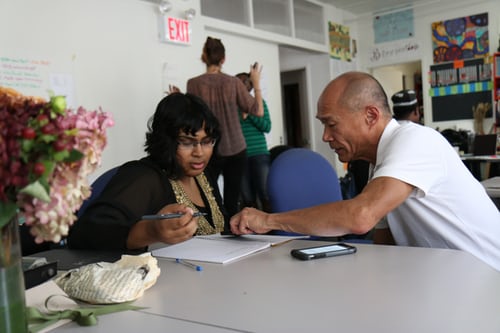Have you wondered how you could improve your staff’s communication and leadership skills on an ongoing basis? The new Toastmasters training program, Pathways, is a great place to start. Pathways is an online program that starts with an assessment to meet each member’s individual needs and to enable them to become better and more confident communicators and leaders. The various projects focus on practical skills like Team Collaboration which covers subjects like “Understanding Your Leadership Style” and “Motivate Others”.
There are 11 different paths with more being added every year. When you join Toastmasters you receive a login to the Toastmasters International website, which is where the Pathways program resides. After completing the assessment you will be presented with the the best matched path and an additional 2 paths as alternative choices, if you are not keen on the best match. Although you are free to select one of the remaining 8 paths if these alternatives don’t suit you.

The Pathways program has 5 levels, each capitalising on the previous. Subsequent levels are progressively harder than its predecessor and the online lessons give the member a comprehensive explanation for each project. There are common core subjects, commencing with the “Icebreaker” (the first project in level 1) and “Introduction to Toastmasters Mentoring” (a project in level 2) and specialised subjects like “Develop a Communication Plan”.
For those members who are keen to pursue mentoring, there is a separate path, “Pathways Mentor Program”, which is made available once you complete level 2. The program is comprised of three projects that must be completed sequentially. The projects cover a range of topics from understanding your role as a mentor through to a comprehensive assignment that includes a mentoring commitment lasting six months. All projects are evaluated with personalised specific feedback.
A range of tutorials and resources are available for downloading, including 360o Evaluations as well as supportive documentation, like the Navigator – which gives the new member an overview of Toastmasters and the Pathways program. Members receive an award for completing each level as well as completing each path (all 5 levels). The highest educational designation you can earn as a member is the Distinguished Toastmaster (DTM) award, given to those who complete two paths, serve in specific volunteer leadership roles and complete the “Distinguished Toastmaster” project.
Pathways is Toastmasters comprehensive training program designed to improve communication, leadership and interpersonal skills. During the meetings you are learning each skill set by following the curriculum and practising different types of speaking, listening and facilitation skills. In addition, leadership activities like motivating others, planning meetings and marketing as well as interpersonal skills are practised in a safe and supportive environment.
Interested to learn more about Toastmasters and the Pathways training program? Join us at Picnic Point Toastmasters. We meet on the 1st and 3rd Tuesday of the month at 7pm at Club Picnic Point – 124 Lambeth Street, Panania.







You must be logged in to post a comment.